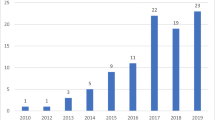Abstract
Today’s computer network technologies are sociologically founded on hunter-gatherer principles; common users may be possible subjects of surveillance and sophisticated internet-based attacks are almost impossible to prevent. At the same time, information and communication technology, ICT offers the technical possibility of embedded privacy protection. Making technology legitimate by design is a part of the intentional design for democracy. This means incorporating options for socially acceptable behaviour in technical systems, and making the basic principles of privacy protection, rights and responsibilities, transparent to the user. The current global e-polis already has, by means of different technologies, de facto built-in policies that define the level of user-privacy protection. That which remains is to make their ethical implications explicit and understandable to citizens of the global village through interdisciplinary disclosive ethical methods, and to make them correspond to the high ethical norms that support trust, the essential precondition of any socialization. The good news is that research along these lines is already in progress. Hopefully, this will result in a future standard approach to the privacy of network communications.
Similar content being viewed by others
Notes
Don't upset my calculations!—Archimedes (supposedly said in deep thoughts over geometrical shapes drawn in the sand at the moment a Roman legionary broke into his house and slew him, during the fall of Syracuse).
References
Benford S, Greenhalgh C, Rodden T, Pycock J (2001) Collaborative virtual environments. Commun ACM 44(7):79–85
Brey P (1999) The ethics of representation and action in virtual reality. Ethics Inform Technol 1/1:5–14
Brey P (2000) Method in computer ethics: towards a multi-level interdisciplinary approach. Ethics Inform Technol 2(3):1–5
Bynum TW (2000) Ethics and the information revolution, In: Collste G (eds) Ethics in the age of information technology. Center for Applied Ethics Linkoeping Universitet. Linkoeping, pp 32–55
Cooley MJ (1999) Invited talk at international conference: enterprise cultures and innovation in the Information Society. University of Brighton
Dodig-Crnkovic G (2003) Shifting the paradigm of the philosophy of science: the philosophy of information and a new renaissance. Minds Mach: Special Issue on the Philosophy of Information 13(4)
DeCew J (2002) Privacy, the stanford encyclopedia of philosophy. In: Edward NZ (ed) (http://www.plato.stanford.edu/archives/sum2002/entries/privacy)
Floridi L (1999) Information ethics: On the philosophical foundations of computer ethics. Ethics Inform Technol 1(1):37–56
Floridi L, Sanders J (2002) Mapping the foundationalist debate in computer science, a revised version of computer ethics: mapping the foundationalist debate. Ethics Inform Technol 4(1):1–9
Floridi L, Sanders J (2003) Internet ethics: the constructionist values of homo poieticus. In: Cavalier R (ed) The impact of the internet on our moral lives,
Gill KS (1997) Knowledge networking and social cohesion in the Information Society, a study for the European Commission
Gill KS (2002) Knowledge networking in cross-cultural settings. AI Soc 16:252–277
Gill KS (2003) Future with AI and Society (http://www.it.bton.ac.uk/research/seake/ai_soc6_3.html)
Goodman N (1978) Ways of worldmaking, indianapolis: Hackett Publishing Human Rights Act 1998 http://www.hmso.gov.uk/acts/acts1998/80042–d.htm
Hinde S (2001) 2001: a privacy Odyssey. Comput Security 20
Hinde S (2002) 2001: a privacy Odyssey Revisited. Comput Security 21
Johnson DG (1997) Ethics online. Association for computing machinery. Commun ACM
Johnson DG (2003) Computer ethics. In: Floridi L (ed) The blackwell guide to the philosophy of computing and information. Blackwell, Oxford
Mason RO (2004) A tapestry of privacy, a meta-discussion. (http://www.cyberethics.cbi.msstate.edu/mason2/)
Mizutani M, Dorsey J, Moor JH (2004) The Internet and Japanese conception of privacy. Ethics Inform Technol
Moor JH (1985) What is computer ethics? Metaphilosophy 16/4 (http://www.ccsr.cse.dmu.ac.uk/staff/Srog/teaching/moor.htm)
Pottie GJ (2004) Privacy in the global village. Commun ACM 47(2):2–23
Powers TM (2004) Real wrongs in virtual communities. Ethics Inform Technol 5(4):191–198
Research Projects at Carnegie Mellon CyLab (2005) (http://www.cylab.cmu.edu/default.aspx?id=10)
Rosen J (2000) Why privacy matters. Wilson Quarta 24(4)
Tavani H (2002) The uniqueness debate in computer ethics: what exactly is at issue, and why does it matter? Ethics Inform Technol 4:37–54
Tavani HT, Moor JH (2000) Privacy protection, control of information, and privacy-enhancing technologies. In: Proceedings of the conference on computer ethics-philosophical enquiry
Thill G (1994) The relevance of associative networks for a sustainable information and communication society. AI Soc 6(1):70–77
Turkle S (1996) Who am we? Wired 4(1):148–152, 194–199
Vance D (2004) The place of cyberethics, information systems ethics. (http://www.cyberethics.cbi.msstate.edu/)
Wagner C, Cheung K, Lee F, Ip R (2003) Enhancing e-government in developing countries: managing knowledge through virtual communities. Electron J Inform Syst Dev Ctries 14(4):1–20
Whitworth B, de Moor A (2003) Legitimate by design: towards trusted virtual community environments. Behav Inform Technol 22(1):31–51
Author information
Authors and Affiliations
Corresponding author
Rights and permissions
About this article
Cite this article
Dodig-Crnkovic, G., Horniak, V. Togetherness and respect: ethical concerns of privacy in Global Web Societies. AI & Soc 20, 372–383 (2006). https://doi.org/10.1007/s00146-005-0024-3
Received:
Accepted:
Published:
Issue Date:
DOI: https://doi.org/10.1007/s00146-005-0024-3




